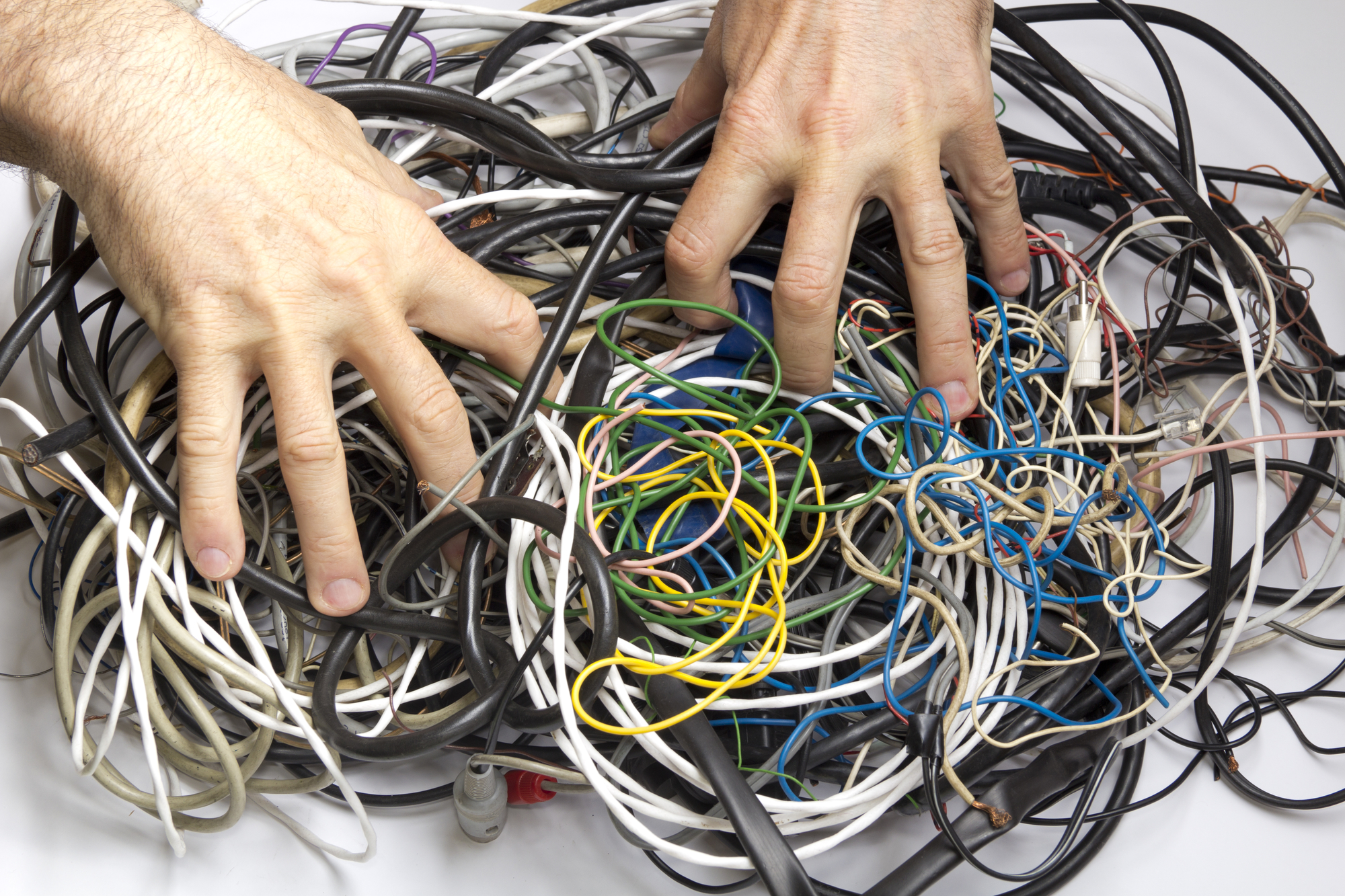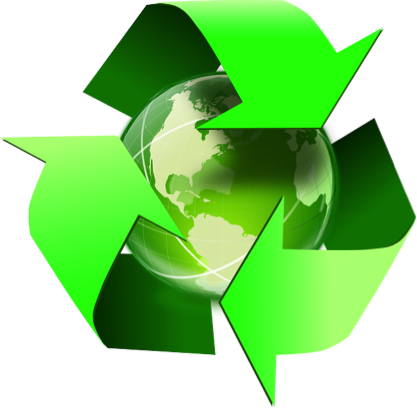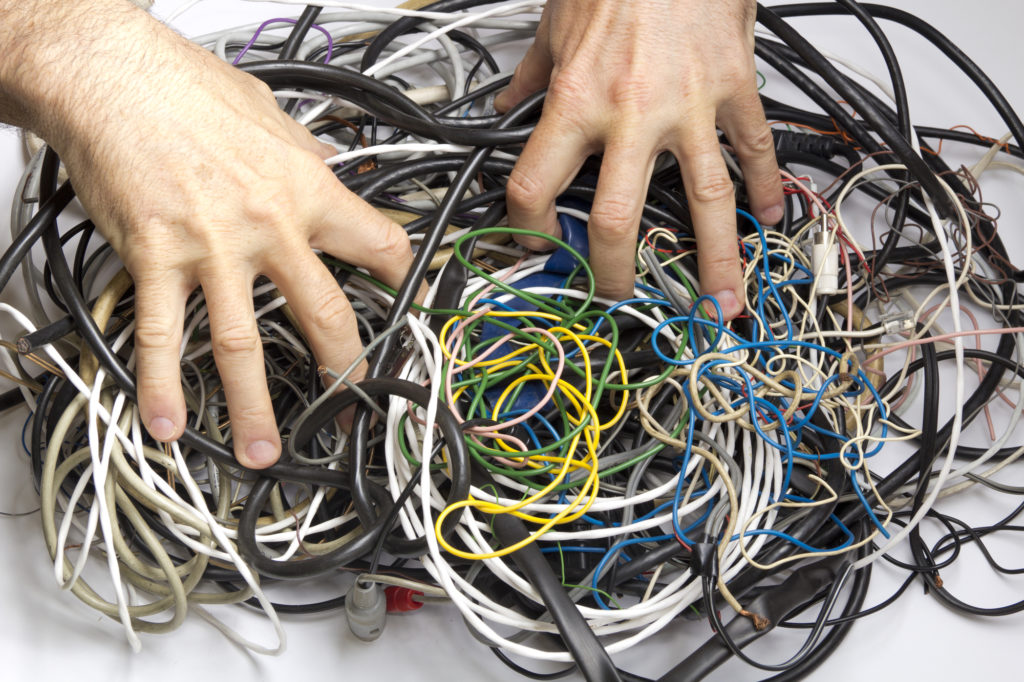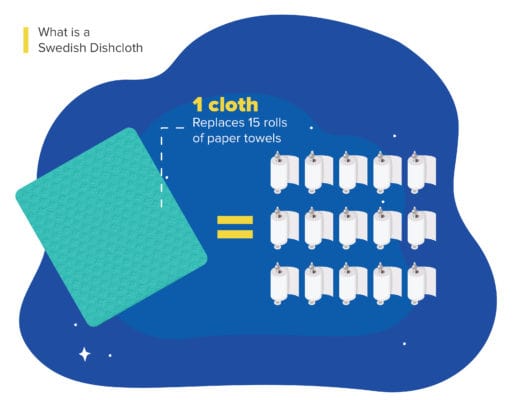
How many electronics cables do you have lying around? Probably a lot! Worldwide, it is estimated that we will throw away 40 million tons of electronic waste this year alone, including the wires and cables we use to charge our phones, power our computers, and keep entertainment centers fun. Do to keep. we worked together eland cables To explain why it is so important to recycle old wires and cables instead of throwing them away.
Too much electronic waste
Electronic waste is the fastest growing sector of the waste stream. In fact, 85% of our e-waste is sent to landfills and incinerators, and that’s not good for the planet. Electronics contain heavy metals and plastics made from various compounds that break down over time and leach into air, water, and soil, potentially polluting water used for drinking, washing, and cleaning.
Communities are reacting as the problem worsens. Throwing away e-waste, even if it is “only” electrical wires and cables, is illegal in the UK, most of the time Europe and many jurisdictions United States of america,
Apart from pollution, there is another reason why it is not advisable to throw waste like wires and cables in the dustbin. These contain important and difficult to obtain metals like copper. The mining of copper required to make cables largely destroys the environment around the place where the mines are located. deep, open copper pits in places like Butte, Montana They are notorious for how ugly, polluting and destructive they are.
Although other rare metals are also used to manufacture wires and cables, copper is ultimately the most widely used electrical and electronic conductor on Earth. In the last few years, copper has become scarce Which makes prices higher, which increases our cost of buying electronics, as well as mines more copper.
Recycling of old wires and cable This is a way to recover copper without environmental destruction.
How to recycle old wires and cables in your area
 To reiterate my point
To reiterate my point
Copper is selling for a little more than $3 per pound. Any metal recycling center will be happy to accept your copper-core wires, and the more the better. BestBuy, Staples and other stores with electronics that will help electronics recycling Very.
In fact, they’ll also accept most of your small electronics, in addition to wires and cables. you can do it too Sell your used electronics here.
Reuse
With the exception of some Apple products, most of your home entertainment wires and cables can be used with other devices. For example, the cord I use to charge my Kindle Fire can also charge my Samsung Galaxy phone.
New Electronics Come With Their Own Power Cable But Not Necessarily hdmi or coax, It’s a good idea to have a set of back-up cables that you can use for your devices. Whatever you can’t reuse yourself, ask your friends and family if they can.
Donate
Many schools and nonprofits happily accept electronics donations, even if you only have the awkward power cord or old Ethernet cable that isn’t long enough.
STEM – science, technology, engineering and math – programs across the country are always looking for ways to save money on obtaining the items they need for their programs. Simply Google STEM or the National Center for Electronics Recycling to find out what’s available in your area.
Last but not least, you can always go earth911 To learn more about where to recycle electronics in your neighborhood.
Sell Your Old Wires and Cables
- Technology Enthusiasts and Inventors: Your old charging cord or cable might be just what they’re looking for. You could list them on platforms like Craigslist.
- Metal Recycling Centers: These centers often accept old wires and cables for the copper inside them. Some may require you to strip the plastic insulation before selling.
- Electrical Liquidators: Companies that buy old electronic goods to sell to manufacturers or other buyers. They usually accept larger quantities, such as boxes of cables.
Reuse and Repurpose
- Compatibility with Multiple Gadgets: Many charging cords and cables can work with different devices, especially non-Apple products. It’s always good to have a backup charging cord.
- Freecycle: Offer your cables for free on platforms like Freecycle, so someone else can reuse them1.
Recycling Options
- E-Waste Recycling Facilities: Take your old wires and cables to the nearest e-waste recycling facility. Companies like Best Buy may also accept them as part of their recycling programs.
- Local Recycling Points: Use a recycling locator to find your nearest recycling point by entering your postcode.
- Retailer Take-back Programs: Many stores will take back old electrical products for recycling, even if you’re not making a purchase. This includes all accessories, including cables.
Before Recycling
- Repair: Check if the cable can be repaired with a soldering iron or screwdriver before recycling.
- Donate: Some charities accept chargers and leads in working order for resale or recycling.
- Sell for Cash: Explore car boot sales, local networks, or online marketplaces like Gumtree and eBay to sell your cables for cash.
Environmental Impact
- Valuable Materials: Cables contain precious materials like copper, aluminum, and sometimes gold, which can be recycled into new products.
- Plastic Coatings: The coatings are often made of polyethylene or polyvinyl chloride, which can release harmful contaminants if not disposed of properly.
Note: Paid partnerships enable us to bring you expert advice and information at no additional cost. Our editorial opinions remain our own. Thank you!
10 Ideas for Recycling Old Wires and Cables:
- How To Find a Local E-Waste Recycling Center:
– Search online using keywords like “[your area] e-waste recycling” or “[your area] metal recycling center.”
– Check with your local waste management department for designated e-waste drop-off locations.
– Utilize resources like Earth911 to search for recycling centers by zip code and material type (wires and cables). - How To Prepare Your Old Wires and Cables for Recycling
– Sort by material. Copper wires usually fetch a higher price. Separate them from plastic cables and other components.
– Remove any attachments like plugs or connectors if possible. This simplifies processing at the recycling facility.
– Store your wires securely in a box or bag to prevent tangles during transport.
– Check with your chosen recycling center for any specific preparation guidelines. - How To Get Cash for Your Old Wires and Cables
– Separate copper wires from other materials. Copper has the highest scrap value.
– Strip insulation off copper wires (optional, but some centers pay more for bare copper). There are tools available specifically for this purpose.
– Weigh your copper at a metal recycling center that accepts bare copper for the best price. Prices fluctuate, so check current market rates beforehand. - How To Test Old Cables for Compatibility with New
– Identify the cable type (e.g., HDMI, USB, power cord).
– Try connecting the cable to a device that uses the same type of port. If it charges or transmits data successfully, it’s still functional.
– Search online for cable compatibility charts to see if specific cables work with newer devices. - How To Donate Old Electronics to Schools and Non-Profits
– Search online for “[your area] electronics donation” or “[your area] STEM programs.”
– Contact schools, libraries, or charities focused on technology education to see if they accept used electronics.
– Focus on donating functional electronics in good condition. Schools might use them for learning purposes or parts for repair projects. - How To Prepare Old Electronics for Donation
– Wipe any personal data from the device’s storage (hard drive, memory cards) using factory reset options.
– Clean the exterior of the device with disinfectant wipes.
– If possible, include any original power cords or accessories with the donation. - How Recycling Old Wires and Cables Helps the Environment
– Reduces electronic waste (e-waste) from landfills, which can leach harmful chemicals into the environment.
– Conserves natural resources by recovering valuable copper for reuse in new products, minimizing the need for new mining.
– Lowers the environmental impact of mining, which can involve deforestation, soil erosion, and water pollution. - How To Reduce Your Electronic Waste
– Purchase durable electronics built to last longer.
– Consider buying multi-functional devices that can replace the need for multiple single-purpose gadgets.
– Properly care for your electronics to extend their lifespan.
– Research repair options for broken electronics before discarding them. - How To Safely Dispose of Damaged or Non-Recyclable Electronics
– Check with your local waste management department for specific disposal guidelines for non-recyclable electronics.
– Never throw electronics in the trash. They contain hazardous materials that can harm the environment.
– Consider specialized e-waste disposal companies for large quantities of electronics or items with hazardous components (e.g., batteries). - How To Organize a Community E-Waste Collection Drive
– Partner with local recycling centers or electronics manufacturers that offer e-waste collection programs.
– Secure a location with easy access and ample space for collecting electronics.
– Spread awareness through social media, flyers, and local media outlets to encourage participation.
– Organize volunteers to help with collection, sorting, and transportation of e-waste.
FAQs:
A. Recycling old wires and cables prevents electronic waste from polluting the environment and allows for the recovery of valuable metals like copper.
A. It prevents pollution from landfills, recovers valuable copper resources, and reduces the need for environmentally destructive mining.
A. Electronic waste contains heavy metals and plastics that can leach into air, water, and soil, posing risks to human health and the environment.
A. Absolutely! Many cables, especially for charging or HDMI connections, are compatible with various devices. Test them out before discarding.
A. Offer them to friends, family, or schools with STEM programs. Alternatively, some recycling centers might accept them.
A. Yes! Best Buy, Staples, and other electronics stores with recycling programs often accept cables alongside unwanted electronics.
A. Schools, nonprofits, and STEM programs often accept electronics donations, including wires and cables, to support their educational initiatives.
A. online for “your area electronics donation” or check with schools, libraries, or charities focused on technology education.
A. Copper prices fluctuate, but it’s usually around $3 per pound. The more you collect, the more you can earn.
A. Recycling facilities extract valuable metals like copper for reuse in new products. This reduces reliance on virgin materials and minimizes environmental impact.
A. Electrical wires typically cannot be recycled in regular household recycling bins due to their composition and potential hazards. They often contain metals like copper or aluminum, which can be recycled, but the insulation around the wires poses challenges for recycling facilities. Instead, it’s best to take electrical wires to specialized recycling centers or scrap yards where they can be properly processed.
A. To dispose of electrical cables responsibly, you can take them to electronic waste recycling centers or scrap yards that accept such items. These facilities have the equipment and expertise to handle electrical cables safely and ensure that valuable materials are recycled while hazardous components are disposed of properly.
A. Yes, you can often receive compensation for old cables by selling them to scrap yards or recycling centers. The value of the cables depends on factors such as the type of metal they contain (e.g., copper, aluminum), their weight, and current market prices for scrap metal. Before selling, it’s advisable to separate different types of cables and remove any non-metal components to maximize their value.
A. The best way to get rid of cable wires is to recycle them through designated recycling programs or scrap yards. These facilities can handle cable wires safely and ensure that they are processed in an environmentally responsible manner. Alternatively, you can donate usable cables to local charities or electronic recycling events.
A. Telephone wire typically contains copper, which has value as a recyclable material. While the value of telephone wire may not be as high as other types of cables, it can still be worth scrapping, especially if you have a large quantity. It’s advisable to check with scrap yards or recycling centers for current prices and requirements for scrapping telephone wire.
A. Putting electrical items, including wires and cables, in regular household bins can have negative consequences for the environment and waste management systems. Electrical items often contain hazardous materials and components that can leach into the soil or groundwater if not properly disposed of. Additionally, electrical items may end up in landfills, where their components may not degrade or break down properly.
A. Instead of throwing away old cables, it’s better to recycle or repurpose them whenever possible. Recycling ensures that valuable materials are recovered and reused, reducing the need for new resources and minimizing environmental impact. If the cables are still functional, consider donating them to organizations or individuals in need.
A. Wires and cables should not be placed in regular recycling bins, including blue bins, due to their composition and potential hazards. However, some municipalities may have specific programs or drop-off locations for recycling electronic waste, including wires and cables. It’s advisable to check with local recycling authorities for guidance on proper disposal methods.
A. Recycling cables and chargers involves taking them to designated electronic waste recycling centers or drop-off locations. These facilities have the expertise and equipment to handle electronic items safely and ensure that valuable materials are recycled while hazardous components are disposed of properly. Some retailers may also offer recycling programs for electronic accessories like cables and chargers.
A. There are several options for dealing with old cable wires, including recycling, repurposing, or selling them for scrap. Recycling ensures that valuable materials like copper or aluminum are recovered and reused, while repurposing allows you to give old wires a new life in DIY projects or crafts. Selling old cable wires to scrap yards can also earn you some extra money while contributing to recycling efforts.
A. Old live wires should be handled with caution due to the risk of electric shock or fire hazards. It’s essential to disconnect live wires from power sources and safely dispose of them according to local regulations. Recycling centers or scrap yards that accept electrical items may also be able to handle old live wires safely and responsibly.
A. Yes, wires, especially those containing valuable metals like copper, aluminum, or gold, can be worth money when sold to scrap yards or recycling centers. The value of wires depends on factors such as their type, weight, and current market prices for scrap metal. It’s advisable to separate different types of wires and remove any non-metal components to maximize their value.
A. If you’re considering cutting old cable wires in your house, it’s essential to proceed with caution and ensure that you’re not interfering with any active electrical circuits. Before cutting wires, always turn off the power to the relevant circuits at the breaker box to prevent electric shock or fire hazards. If you’re unsure about cutting wires safely, it’s best to seek assistance from a qualified electrician.
A. Recycle: Many electronics stores and recycling centers accept old chargers and cables for recycling. Look for e-waste recycling programs in your area.
Donate: If the chargers and cables are still functional, consider donating them to schools, community centers, or organizations that can use them.
Reuse or Repurpose: You might be able to use old chargers and cables for other devices or repurpose them for DIY projects.
Manufacturer Take-Back Programs: Some manufacturers have take-back or recycling programs. Check the manufacturer’s website for details.
Electronic Recycling Events: Look for local events specifically for collecting electronic waste, often organized by community groups or municipalities.




